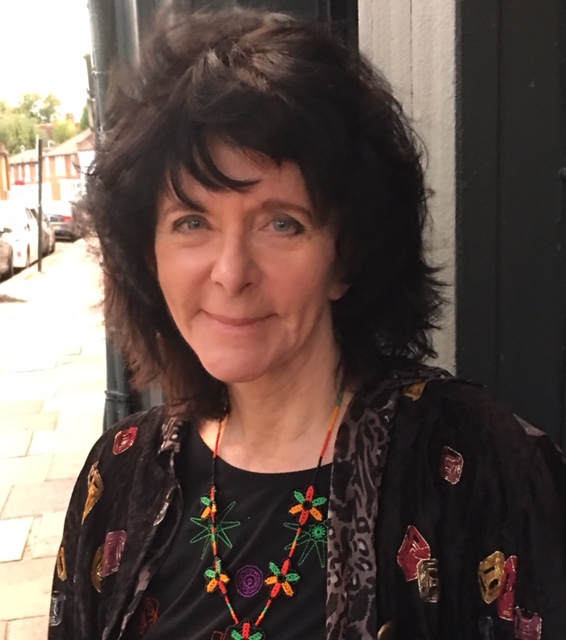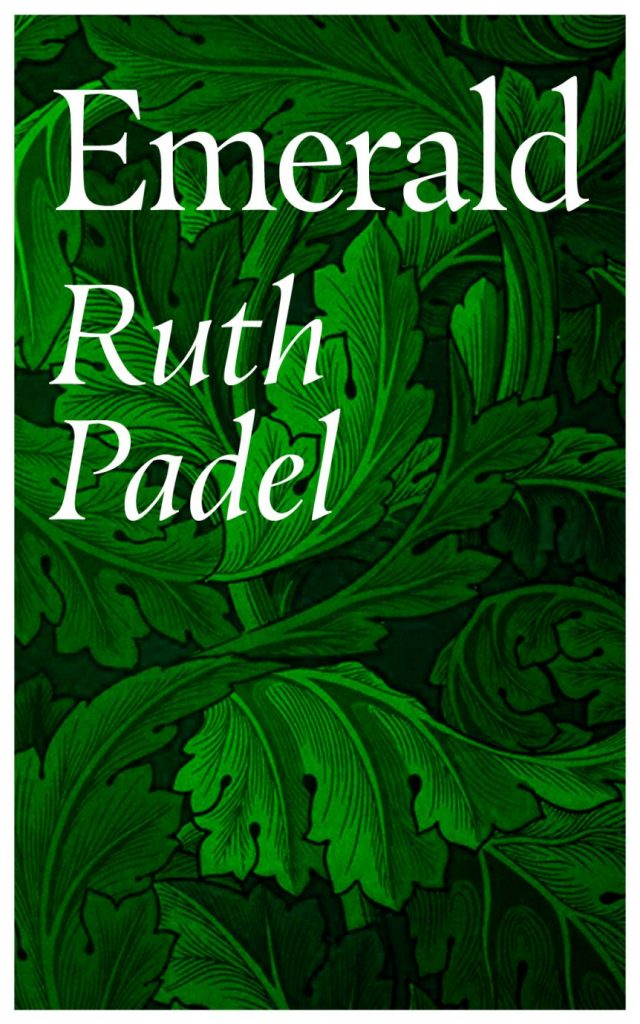
Ruth Padel
Emerald
Emerald is a grief observed, a moving exploration of Ruth's mother’s life, personality and death: about memory, bereavement and moving on.
‘Her story, of a daughter’s love for her mother, allows her to reach for a movingly selfless language of human relations. She brings back never-before-seen jewels from those places where the mind goes to take refuge from grief.’ Hugo Williams
'Here in deep earth the black
blossom of mourning still sifting within me
I remembered that emerald was my birthstone…'
Ruth was researching emeralds in mining, history and alchemy, and the history of the jewel valued even above diamonds, when her 97-year old mother fell ill and all questions of value turned personal. Tender, imaginative, beautifully carved and cadenced, Emerald is a daughter’s chronicle of loss, following the glint of green, ‘green for awakening / for bringing life back from the dead,’ she moves from memories of her mother, a naturalist, to the black honeycomb of a Colombian emerald mine, sunset-pinks of the Emerald City, Jaipur, and the jewel itself, ‘the only stone in which the flaws are prized’.
From reviews:
‘Everyone should read Emerald…’ André Naffis-Sahely, Ambit
‘Ruth Padel is one of our national treasures … Her latest book ranks as one of her greatest achievements to date. In her poetry, the journey is the stepping stone to lyrical reflections on the human condition. Intense flights of geological and geographical fancy are anchored to the bedrock of real emotion. This is a moving memoir of her mother, who emerges as a jagged, charming character. Painting an intensely beautiful portrait of farewells, and grief, but also appealing humour, Padel has made great art out of her ingenious blending of lyric memoir, natural history, and travel. Everyone should read Emerald, as valuable as the title implies.’
‘A work of wild and generous imagination from a writer at the peak of her powers.’ Sarah Westcott, The Poetry School
A rich excavation of the truths and mysteries to be found in grief, of interest to any reader concerned with the limitations and beauty of the human condition. It is a tender honouring of the author’s mother and the particularities of her dying, with green as a ‘solace’ mined from deep seams of precious mineral and personal material, and a philosophical and personal quest into the inner landscape of grief.
Padel’s finest writing of the inner life is animated with a kind of astonishing brio. Writing of mothers can become bogged down in particularities, or washed into generalities, but Padel creates a strong sense of Hilda as a tangible presence yet broadens this into a universal grief for the loss of The Mother.
The tone of address in ‘Nursing Wing’ is particularly moving. Padel addresses the air itself in the nursing wing where a dying mother in turn is ‘labouring’ ‘losing’ and ‘lifting’. Articulating the limitations of poetry-as-elegy Padel writes gracefully: ‘All we have all we ever have are words.’ It seems fitting that from the midst of ‘lostness’, Padel has created a collection that is very much alive with uniquely restless, questioning intensity.
‘A requiem on the passing of her mother, but also a poet’s rumination on emeralds’ Keki N. Daruwalla The Hindu
‘She needs to be read for the scintillations she provides. Her craft lies in how effortlessly she mingles the tragic vein of loss with moving house, mining and profundity.’
